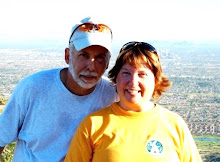Yesterday I was surfing through a few TED talks and happened to
listen to Casey Gerald who talked about the gospel of doubt. He is clearly a
gifted speaker and writer who walked through his life experience within the
church and how his church family faced the Y2K hope of Jesus’ return. His view
of God, the church and his own faith changed after the clock went past midnight
and there wasn’t a rapture. He went from being someone that put all of his hope
in the Bible, God and Jesus to someone that saw doubt as being real and let go
of his childhood beliefs.
He transitioned from preaching a gospel about change through Jesus
to self-transformation through being someone that took advantage of
opportunities. Yet, our shared reality is that everyone doesn’t choose to be a
hustler and those that wait discover that little ever happens in their favor.
So what is the essence of hope and does it have any relevance to the believer, secularist
or out right pagan any more?
I quickly discovered in college while doing a philosophy degree that
faith or hope for the sake of belief didn’t necessarily give someone help or
assurance that tomorrow would be better. The secularist, atheist or nonbeliever
would ultimately see that tomorrow’s hope is a byproduct of their own effort,
circumstances around them such as their family, friends and work associates and
then just out right chance or for believers God’s providential care.
I have been around too many people that have placed their hope in
the future in someone else’s hands that usually doesn’t share a passion for
them and in the end little or nothing happens that brings a better tomorrow. I
have personally experienced the positive impact when someone you trusts does
follow through and walks with you through life’s tough times. The end result
usually is that I have shared my load or burden with a friend that has helped
me see the light at the end of a tunnel of discouragement.
So is hope just some mysterious cosmic force that gives us the extra
‘kick’ to do something that’s not in our skill set? Is it possible for someone
who isn’t part of the faith community to share a hope for the future to be
brighter and better? I do believe that hope transcends beliefs, race,
socio-economic settings and educational backgrounds. I know that there is
tangible evidence of the intangibles in life! It’s so easy to say that you love
or care for someone. Yet, it’s the actions that one lives out that affirms that
love or care. Hope in many ways is similar in that it’s a coalescence of one’s
personal values, beliefs and choices. I can have a hope in God in my own
context that is real regardless of what those around me would debate.
I know that looking back at the world wars or present setting with
terrorist attacks that the tension between evildoers and the average person is
clear. Mankind seems to stand up together to face and fight the evil around us.
I appreciate Eugene Peterson’s Message translation of Hebrews 11:1 that is the
classic definition of hope:
1-2The fundamental fact of existence is that this trust in God,
this faith, is the firm foundation under everything that makes life worth
living. It’s our handle on what we can’t see. The act of faith is what distinguished
our ancestors, set them above the crowd.
So is it possible in today’s eclectic world setting to live between
faith, hope, doubt, belief and lack of belief? My life, no different from
anyone else, is a byproduct of my faith in God, my ongoing doubts about my own
abilities and those around me. Yet, in the bigger picture of reaching senior
status I do see so much benefit from my faith journey even in the midst of life
trials, almost losing our first born to being too premature to facing the battle
of cancer with my mom to my dad’s decline and death because of dementia. I know
that it’s possible to face the ‘bad stuff’ that is disappointing and faith
challenging and see looking back in the rear view mirror of life that a belief
in God is still a common thread in our society. I also see man’s sense of hope
in humankind as a significant factor in choosing to not give up or quit in
difficult circumstances.
Doubt doesn’t have to push anyone to being a ‘doomsday’ advocate but
instead someone that sees faith, hope and doubt as a normal part of everyone’s
life. Yet, I was saddened to hear one of
my 60 and 70’s rockers took his own life because he was no longer able to meet
the expectations of his fans. Clearly discovering your own faith, belief and
hope is essential for having a great life that is able to face both the storms
and victories each day!


No comments:
Post a Comment